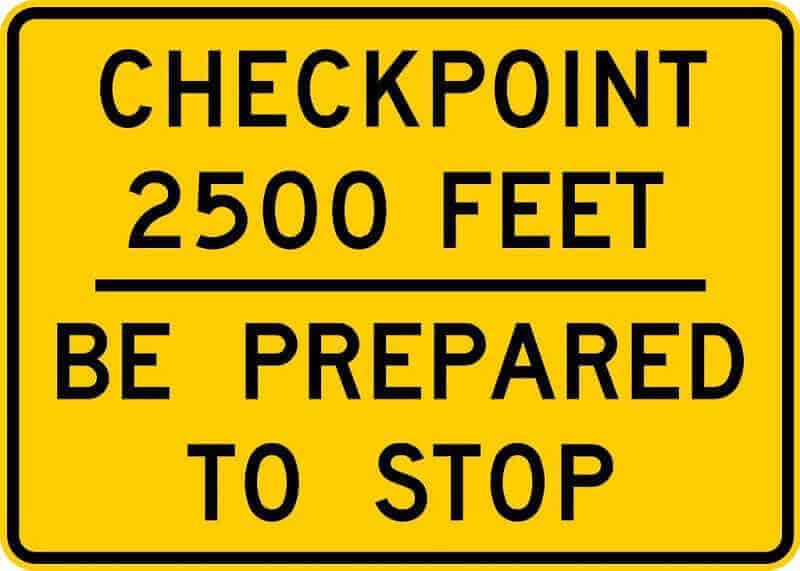Airport, Seaport, and Bus Searches vs. Private-Vehicle Searches During Checkpoints
What do you do when your vehicle is flagged down at a checkpoint by the authority? Can they search your baggages without violating the law?
Section 2, Article III of the Constitution provides the right of the people against unreasonable searches and seizures, to wit:
“SEC. 2. The right of the people to be secure in their persons, houses, papers, and effects against unreasonable searches and seizures of whatever nature and for any purpose shall be inviolable, and no search warrant or warrant of arrest shall issue except upon probable cause to be determined personally by the judge after examination under oath or affirmation of the complainant and the witnesses he may produce, and particularly describing the place to be searched and the persons or things to be seized. (Emphasis supplied)
The protection applies only to unreasonable searches and not to reasonable ones, which include those done at airports, seaports, bus terminals, malls, and similar public places.
The prohibition of unreasonable search and seizure ultimately stems from a person’s right to privacy. Thus, in the case of Marcel Saluday vs. People of the Philippines, G.R. No. 215305, April 03, 2018, the Supreme Court cited case decisions affirming that the search of persons in a public place is valid because the safety of others may be put at risk. The Court had this to say:
“To illustrate, in People v. Johnson,the Court declared airport searches as outside the protection of the search and seizure clause due to the lack of an expectation of privacy that society will regard as reasonable.
Similarly, in Dela Cruz v. People,the Court described seaport searches as reasonable searches on the ground that the safety of the traveling public overrides a person’s right to privacy. x x x
In People v. Breis, the Court also justified a bus search owing to the reduced expectation of privacy of the riding public.
Aside from public transport buses, any moving vehicle that similarly accepts passengers at the terminal and along its route is likewise covered by these guidelines.
Hence, whenever compliant with these guidelines, a routine inspection at the terminal or of the vehicle itself while in transit constitutes a reasonable search. Otherwise, the intrusion becomes unreasonable, thereby triggering the constitutional guarantee under Section 2, Article III of the Constitution.
Does this foregoing guideline apply to privately owned cars? The Supreme Court said that they do not apply to privately-owned cars. Neither are they applicable to moving vehicles dedicated for private or personal use, as in the case of taxis, which are hired by only one or a group of passengers such that the vehicle can no longer be flagged down by any other person until the passengers on board alight from the vehicle.
About Nicolas and De Vega Law Offices
If you need assistance in civil or other criminal law-related issues, we can help you. Nicolas and de Vega Law Offices is a full-service law firm in the Philippines. You may visit us at the 16th Flr., Suite 1607 AIC Burgundy Empire Tower, ADB Ave., Ortigas Center, 1605 Pasig City, Metro Manila, Philippines. You may also call us at +632 84706126, +632 84706130, +632 84016392 or e-mail us at info@ndvlaw.com. Visit our website www.ndvlaw.com.

